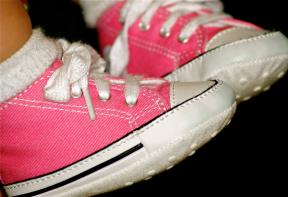Baby-proof your home
When it comes to babies and toddlers, the dangers are subtle
Now that my wife, Mehnaz, and I are about to have our first child, I’ve come to an important realization: our house is a death trap. Truthfully, I’m being only slightly overdramatic. It seems everywhere I look, there’s another unlocked cabinet full of poisonous cleaners for a child to consume and one more electrical socket a curious toddler is sure to shove a knife into (like I once did), not to mention three flights of stairs for our baby to tumble down. Before this kid is born and sentenced to an untimely death, I’m on a mission to baby-proof our home.
“You want to look at the world from your baby’s perspective,” says Yehudah Franken, a Toronto-based baby-proofing consultant. He means that literally. Get down on your hands and knees and crawl around looking for things a child can grab or open.
Some rooms require more attention than others. “The kitchen is the room where all the hazards are: electrical outlets, sharp objects, boiling water. It shouldn’t be a play area,” Franken advises.
Baby-proofing has become a big business, with entire stores dedicated to selling products like the ones shown here. Of course, kids did manage to survive childhood in the past without all these items. It’s really a matter of weighing the risks with the expense and inconvenience of making these alterations.
Some hazards can be avoided with a little creative thinking. For example, instead of buying plastic covers to prevent a child from turning the oven on, you can simply remove the knobs and add them back only when needed.
Many items can be put in place temporarily (or disabled when not needed), so they’re perfect for the grandparents’ houses.
Most of these products are available in different styles, materials and price ranges, so shop around. And if you’re a little proactive, you can always drop some hints for baby shower gifts.
To leave a comment, please log in












No comments